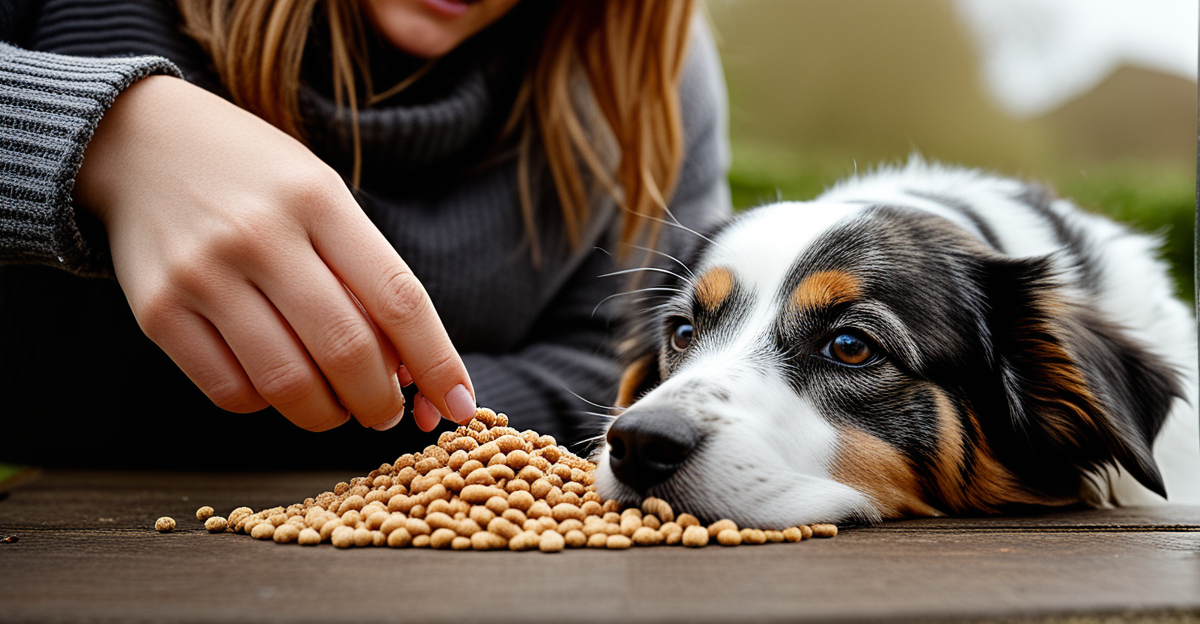Practical Year-Round Strategies for Seasonal Pet Health
Seasonal pet care demands a consistent approach to ensure pets in the UK remain healthy throughout the year. Preventive measures are fundamental. This includes regular grooming, parasite prevention, and maintaining a clean environment free of seasonal hazards. For example, fleas and ticks rise in warmer months, so applying spot treatments regularly is crucial. Conversely, colder seasons require attention to cold weather protection, including shielding pets from frostbite and minimizing contact with salt on pavements.
Core supplies every UK pet owner should have include parasite repellents, hydration solutions, grooming tools, and weather-appropriate clothing or bedding. Having these ready allows swift responses to seasonal changes without delay.
Topic to read : What Are the Unique Traits of Different UK Pet Breeds?
Monitoring pet health and behaviour is another key preventive strategy. Subtle signs such as changes in appetite, lethargy, or skin irritation often precede serious issues. Early detection followed by prompt veterinary advice can prevent complications.
By combining vigilance with proactive measures, UK pet owners can guard against the season-specific challenges their pets face. This balanced strategy ensures pets are comfortable, safe, and thriving all year, enhancing their well-being regardless of the season.
In parallel : How can UK pet owners find the best pet-friendly accommodations?
Spring Health Precautions for UK Pets
Managing allergies and parasites as the season changes
Spring pet care is vital for UK pets because this season brings new challenges like allergy triggers and parasite upticks. Allergies often emerge from pollen and grasses, causing symptoms such as itching, sneezing, and skin irritation. Preventive measures include regular baths and wiping paws to remove allergens, which help reduce discomfort.
Veterinary advice suggests scheduling a spring check-up to catch early signs of allergies or parasitic infestations. Fleas and ticks become active again, increasing the risk of infestations and disease transmission. Effective parasite prevention involves spot treatments and repellents applied promptly at season onset.
Outdoor activities also require caution. Springtime exposes pets to hazards such as hidden sharp objects in gardens or emerging toxic plants. Maintaining seasonal grooming ensures mats and dirt don’t trap allergens, while regular coat checks reveal ticks before they embed.
In summary, combining vigilant health monitoring with proactive parasite control and allergy management forms the cornerstone of spring pet care in the UK. This strategy keeps pets comfortable and resilient through seasonal environmental changes.
Summer Heat and Parasite Protection
Keeping your pet safe and comfortable during the hottest months
Summer pet safety is essential to prevent heatstroke, a serious condition that can affect UK pets exposed to high temperatures. To keep pets cool, ensure constant access to fresh water and provide shaded resting areas. Avoid walking dogs during peak heat hours; early mornings or evenings are preferable. Recognising heatstroke signs—excessive panting, drooling, and sluggishness—allows prompt action to prevent severe outcomes.
Parasite activity, especially fleas and ticks, intensifies in summer. Effective tick prevention relies on regular spot treatments and repellents applied according to veterinary guidelines. These products limit infestation risks and reduce disease transmission. Regularly inspecting pets after outdoor activities can catch ticks before they attach.
Adjusting exercise routines also protects pets from overheating. Shorter, calmer walks during cooler periods help maintain fitness without stress. Combining hydration, shade, parasite control, and exercise moderation forms a comprehensive strategy. This approach not only shields pets from summer hazards but ensures continued wellbeing during prolonged warm spells.
In summary, summer pet safety involves proactive measures against heatstroke and parasites, balanced with practical adjustments to activity and environment. These efforts keep UK pets healthy and comfortable when temperatures rise.
Autumn Awareness: Transitioning Safely
A vital phase for UK pets as seasons change
Autumn pet care requires extra vigilance due to increased exposure to fungal risks like mould and mushrooms, which thrive in damp, fallen leaves. Pets may ingest toxic fungi during walks, leading to serious health problems. Recognising early symptoms such as vomiting or lethargy is crucial for prompt veterinary intervention.
Dietary changes become important as temperatures cool. Pets often need adjusted nutrition to maintain energy levels and support immune function through autumn’s chill. Consulting with a vet on diet adaptations ensures balanced nutrition tailored to individual needs and activity levels.
Routine modifications also help pets transition smoothly. Reduced daylight affects exercise patterns, so keeping outdoor activity within safe daylight hours reduces accident risks. This season is prime time to begin the early checklist for winter preparations, including checking bedding insulation and updating parasite prevention as fleas and ticks taper off but can still pose threats.
By addressing fungal hazards, adjusting diet, and preparing for colder months, autumn pet care establishes a strong foundation for year-round wellbeing in UK pets. This proactive approach supports healthier, happier pets during the seasonal shift.
Winter Wellness Tips for Pets in the UK
Winter pet safety demands targeted cold weather protection for UK pets. Hypothermia and frostbite pose serious risks, particularly for small, short-haired, or elderly animals. Owners should provide insulated bedding in draft-free areas and consider weather-appropriate clothing to maintain body heat during outdoor exposure. Paw care is crucial too; salt and de-icing chemicals on pavements can irritate and injure, so washing paws after walks is highly recommended.
Maintaining activity levels indoors is essential as cold weather often reduces outdoor exercise. Interactive toys and short, controlled walks help prevent weight gain and support mental stimulation. Monitoring pets for early illness signs—such as shivering, lethargy, or coughing—enables swift veterinary intervention and avoids severe health decline during winter months.
Supporting older pets is vital; they are more vulnerable to cold stress and joint discomfort. Special diets and supplements, alongside ensuring warm, comfortable resting areas, can significantly improve their quality of life.
Combining vigilant observation with adapted routines and protective measures enhances overall winter wellness. Such strategies are the cornerstone of effective winter pet safety tailored to UK climates, helping pets withstand cold weather challenges while remaining healthy and comfortable.
Veterinary Insights and Expert-Recommended Products
Veterinary advice plays a crucial role in effective seasonal pet care for UK pets. Regular check-ups enable early detection of emerging issues like allergies or parasitic infestations, allowing prompt intervention. Vets recommend scheduling visits aligned with seasonal transitions to optimise preventive measures.
Trusted pet products backed by veterinary expertise form the foundation of a reliable seasonal pet health kit. These include parasite preventatives such as spot-on treatments and collars, supplements to support joint health and immunity, and weather-appropriate clothing that protects against cold or heat stress. Selecting products with proven efficacy ensures pets receive optimal protection year-round.
UK veterinarians also stress the importance of tailoring preventive strategies to individual pet needs. Factors such as age, breed, and activity level influence product choice and timing of interventions. For example, elderly pets may benefit from supplements that enhance mobility and immune function, while active outdoor dogs require robust parasite defense.
Building a seasonal health kit with expert-recommended products bridges the gap between general preventive measures and personalised care. By combining veterinary guidance with quality supplies, UK pet owners can confidently manage their pets’ health through the year’s changing demands. This expert-led approach promotes wellbeing and reduces risk across all seasons.
Practical Year-Round Strategies for Seasonal Pet Health
Seasonal pet care requires consistent preventive measures tailored to the changing environmental risks for UK pets. Essential routines include regular grooming to remove dirt, allergens, and parasites, which helps reduce skin issues and prevents infestations year-round. Parasite prevention with appropriate spot treatments and repellents remains critical through all seasons, adapting frequency based on parasite activity peaks.
Core supplies every UK pet owner should have ready include parasite control products, clean water sources, grooming tools, and weather-appropriate accessories like coats or insulated bedding. These allow swift responses to sudden weather changes or emerging health threats, ensuring pets stay safe and comfortable without delay.
Monitoring pet health and behaviour is fundamental. Owners should observe appetite fluctuations, lethargy, skin conditions, and any unusual signs of discomfort. Early detection enables timely veterinary consultation, preventing minor issues from escalating. Keeping a seasonal diary or checklist supports systematic health tracking.
Incorporating these strategies creates a resilient framework that addresses seasonal challenges proactively. By integrating regular care routines, essential supplies, and close observation, UK pet owners can confidently safeguard their pets’ health throughout the year.









